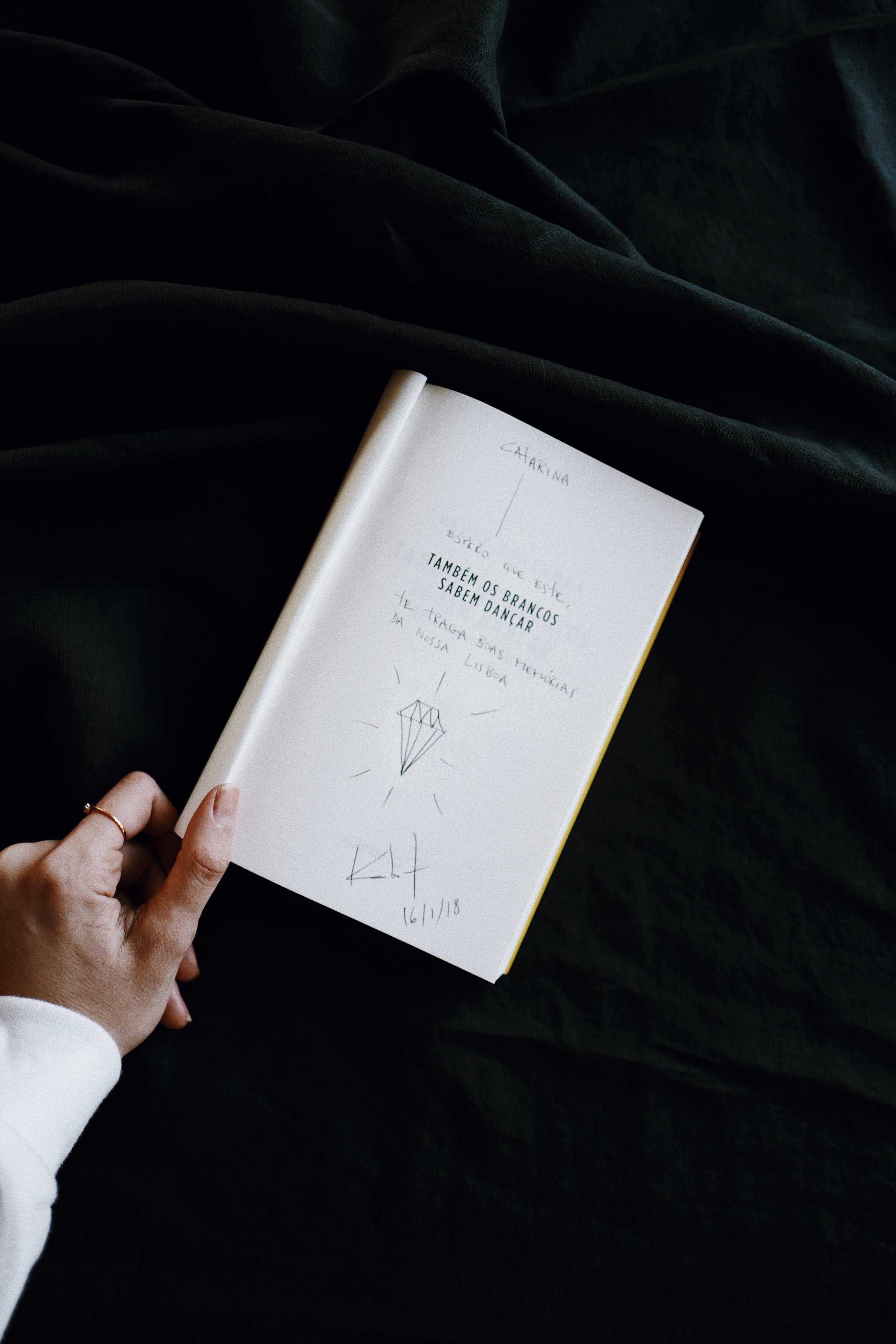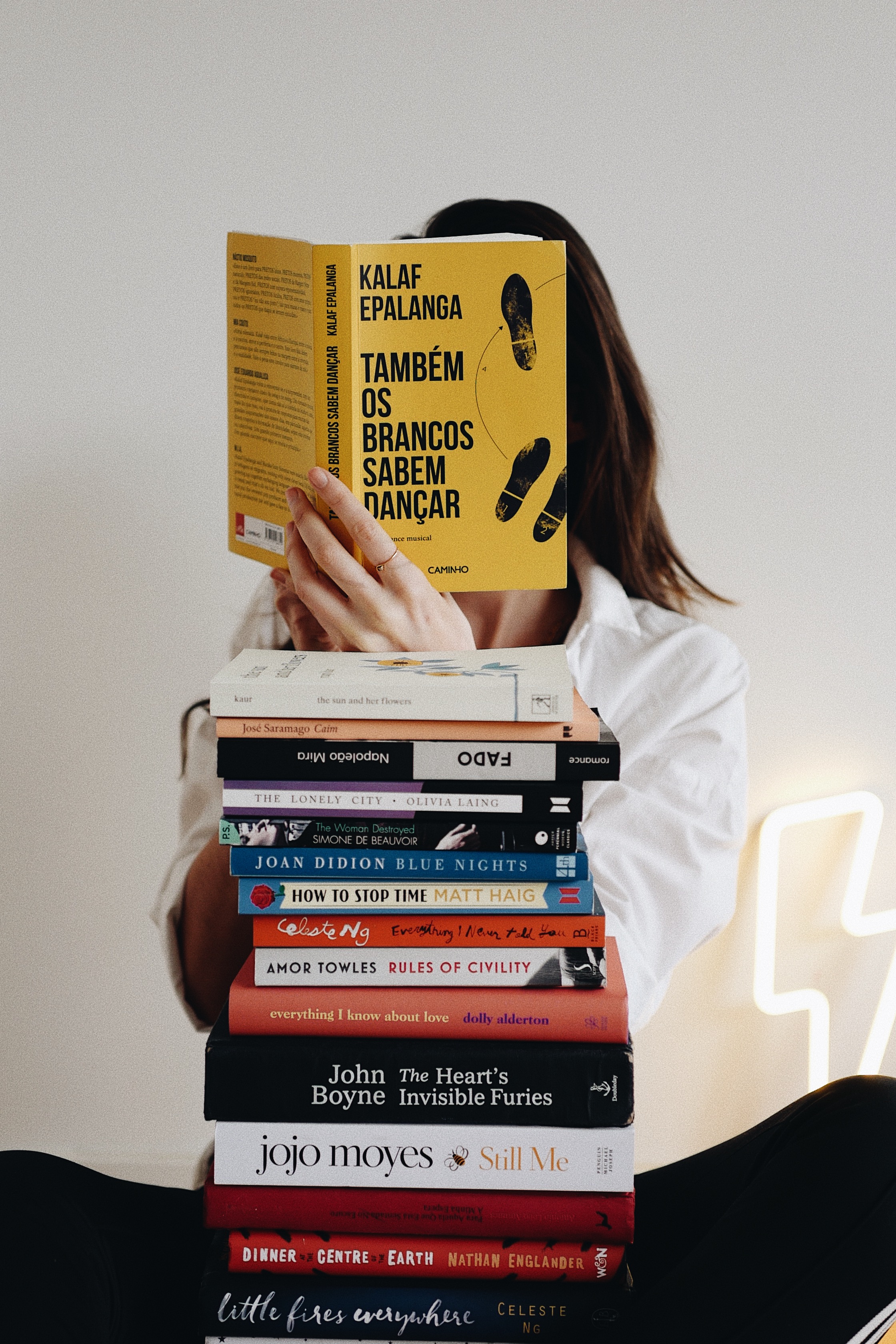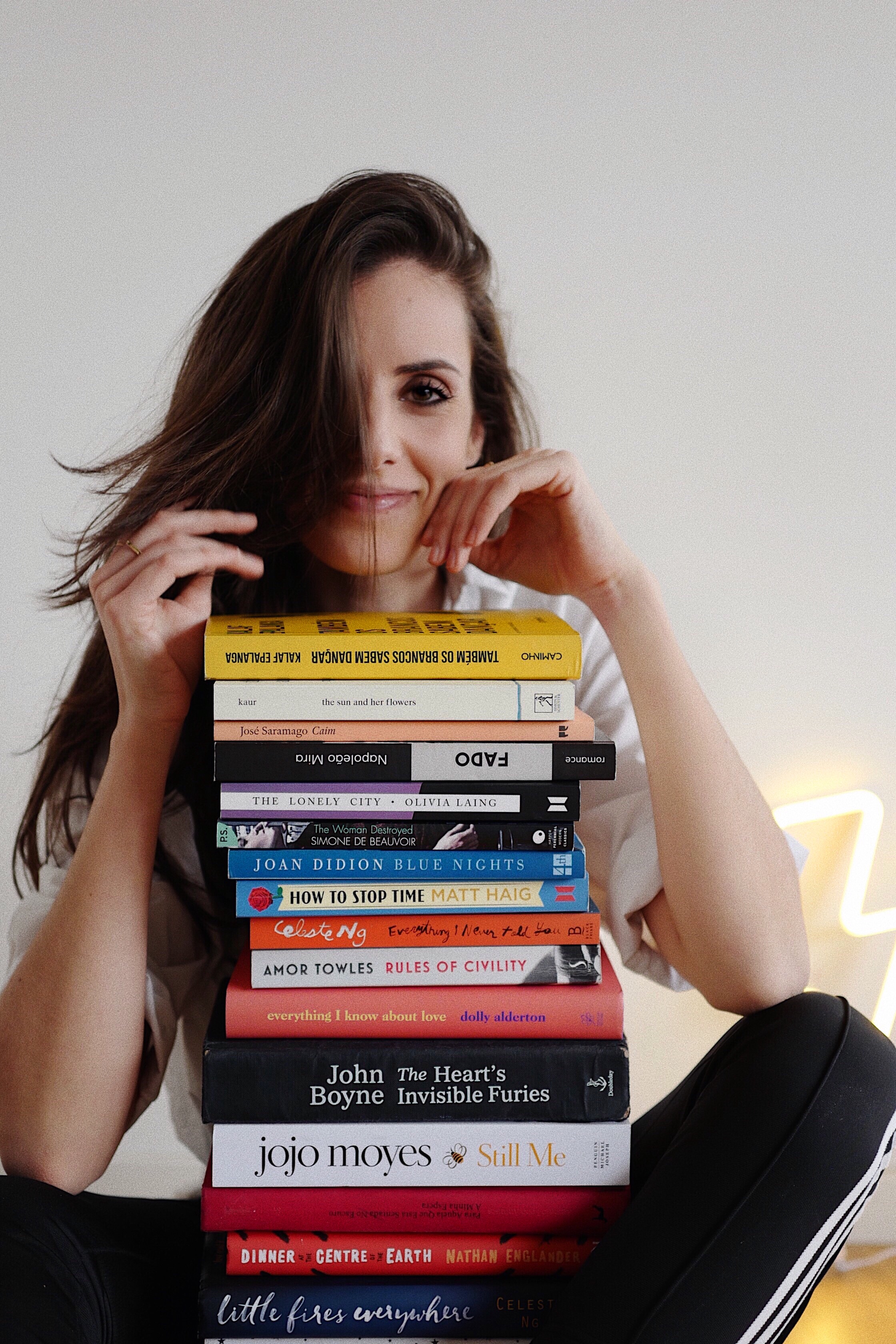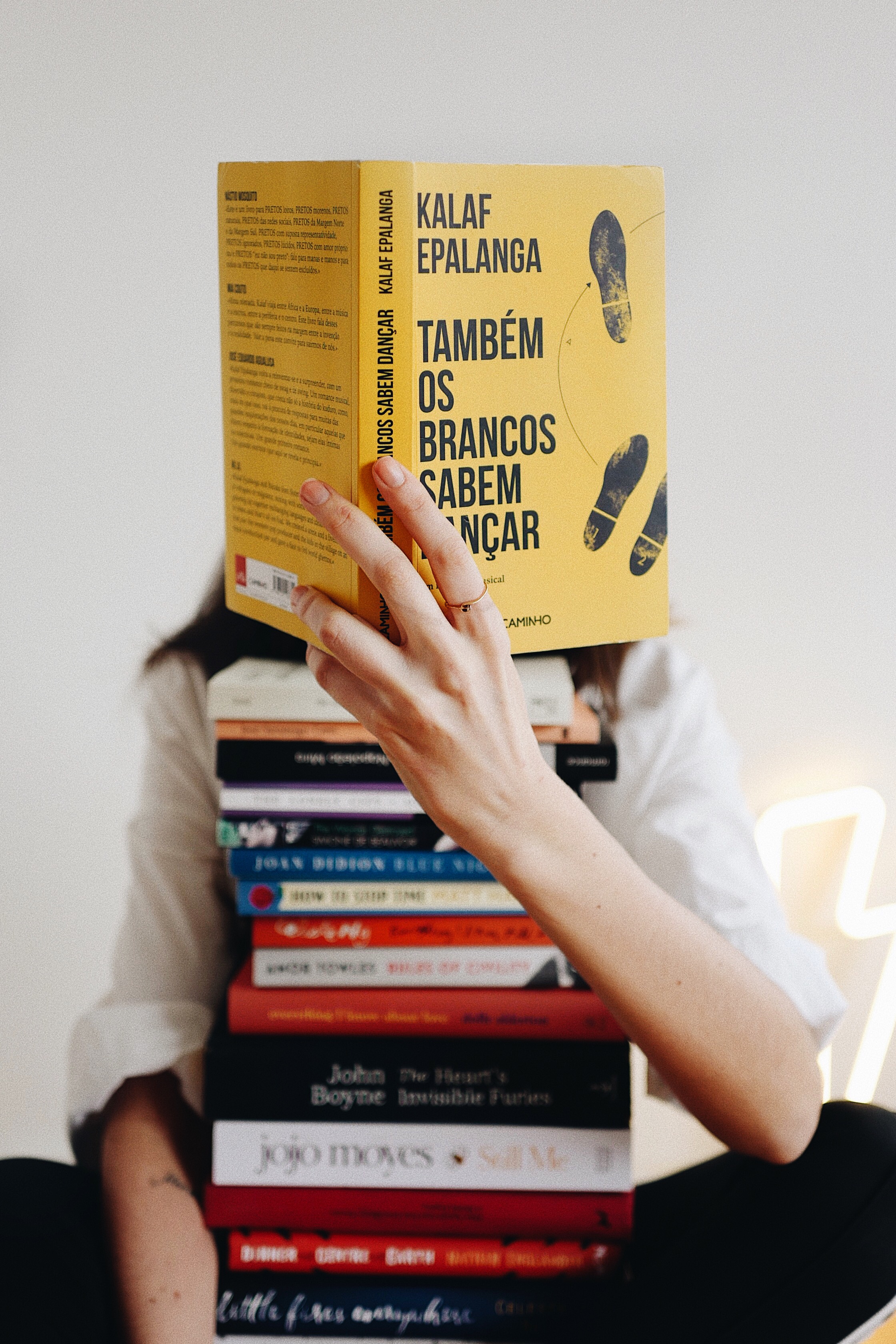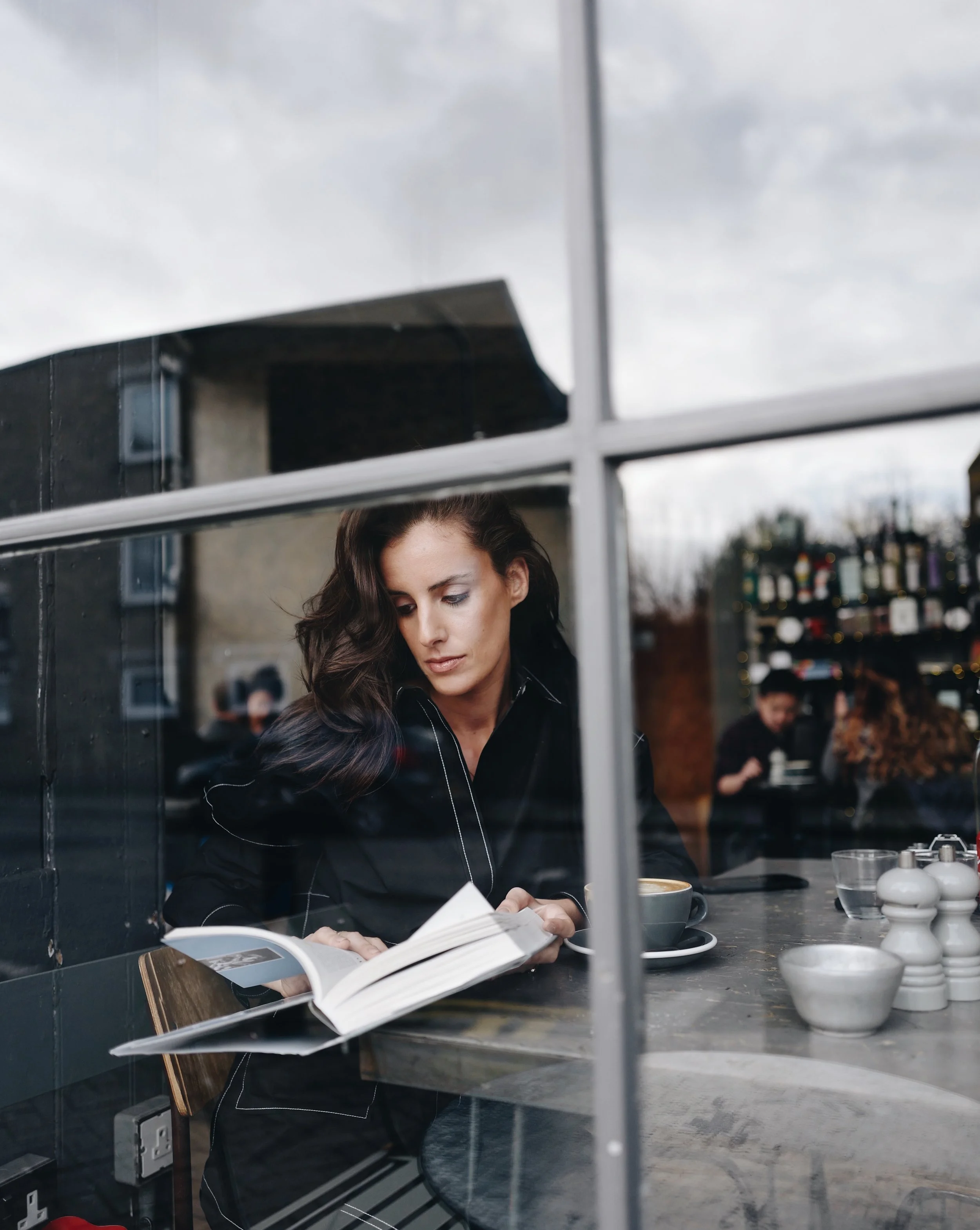Bookclub - Também os brancos sabem dançar

Sem me querer apropriar da belíssima narrativa que o Kalaf compôs nestas páginas, esta história não é só sua mas de certa forma é de todos aqueles que deixaram a sua terra mãe. Apesar de ter tido a honra de receber este livro directamente do escritor, desconhecia por completo o assunto que o mesmo abordava, não fazia ideia da viagem na qual estava prestes a embarcar nem do quanto precisava de a fazer.
No mesmo dia em que me chegou a casa uma carta do município cujo o conteúdo se referia ao Brexit e às consequências que o mesmo terá para imigrantes como eu, recebi o livro “Também os Brancos Sabem Dançar”. Esta coincidência fez com que esta história de inclusão onde a música é empregue como um elo de união entre culturas se tornasse ainda mais relevante. Este livro tem tanto de magnifico como de necessário e não me poderia ter chegado às mãos numa melhor altura.
Eu nasci e cresci no Algarve, em Portugal que, como o autor diz, é o país mais Africano da Europa. Não sei se foi por ter nascido mais a sul que sempre senti uma grande conexão com a música proveniente desse mesmo continente...Quando comecei a sair à noite fazia de tudo para que os meus pais me deixassem ir à quarta-feira ver o Xico Barata e o Badoxa tocar no Vox. Na altura o Badoxa nem era o famoso cantor de Kizomba que é hoje mas apenas o nosso colega de escola. Tal regalia só me era permitida na altura das férias da escola uma vez que a festa se dava a meio da semana. A descoberta da música Africana e das danças a ela associada coincidiu com a experiência de me apaixonar pela primeira vez. Numa altura em que os actos de romantismo não passavam por postar fotos um do outro nas redes sociais mas sim pela gravação de CDs, ganhei o gosto por estes ritmos batucados. Esses CDs adquiriam riscos de tanto tocarem na minha aparelhagem durante as noites em que não me era permitido sair. Com as luzes apagadas e bola de espelhos pela qual implorei no meu décimo terceiro aniversário a rodar transformava o meu quarto numa pista de dança, dando por mim a dançar Kizomba sem que nunca me tivessem ensinado com um par imaginário. Tal fato prova a teoria que eu considero ser a espinha deste livro, que é a de que a música às vezes fala com partes de nós às quais a consciência não tem acesso. O engraçado é que eu cresci a ouvir de forma muito instintiva várias das músicas a que Kalaf se refere na sua obra, deixando que as mesmas se entranhassem em mim sem que nunca me questionasse sobre as suas origens. Lembro-me que nessa altura escrevia mensagens para o meu namorado através dum Nokia 3310 contendo a ocasional palavra em crioulo que ouvia nessas músicas porque para mim, de certa forma, aquela era a linguagem do amor. Ou seja ler a obra do Kalaf e percorrer com ele a história do Kuduro, da Kizomba, do Funaná e do movimento da comunidade Africana em Portugal foi extremamente elucidativo e prazeroso porque completou com o conhecimento de que carecia o meu fascínio ínsito por esta cultura.
Na parte inicial desta obra, Kalaf escreve na primeira pessoa e descreve a sua chegada à metrópole, as dificuldades agregadas a esta fase, a relação com o seu pai e a persistência com que sempre lutou para se concretizar enquanto escritor e músico. Achei esta secção do livro especialmente interessante porque apesar de conhecer o autor há muitos anos desconhecia por completo as primícias do seu percurso. Enquanto também emigrante encontrei nas palavras que descrevem a sua chegada a Portugal conforto e motivação para continuar a lutar pelos meus sonhos.
Eu sei que normalmente costumo contar-vos mais sobre o conteúdo das obras que leio mas desta fez optei por partilhar as emoções que a mesma me fez sentir e as memórias que trouxe ao de cima. Afinal, tal como a música, os livros são para se serem sentidos...
This book is not only Kalaf's but in a certain way it belongs to everyone who has left their motherland. Although I had the honour of receiving this book directly from the writer, I was completely unaware of the subject he was addressing in his book. I had no idea of the journey I was about to embark on or, in fact, how much I needed it.
On the same day that I received a letter from the city hall in which the subject was Brexit and the consequences it will have for immigrants like me, I also received the book "Também os Brancos Sabem Dançar" (“White People Can Also Dance). This coincidence has made this romance of inclusion where music is employed as a link between cultures become even more relevant. This book is both magnificent and necessary and could not have reached my hands at a better time.
I was born and raised in the Algarve, Portugal, which, as the author says, is the most African country in Europe. I'm not sure, but maybe being born in the south is what made me always feel a great connection with African music and culture... When I started partying I tried everything so that my parents would allow me to go to this party on Wednesdays to see Xico Barata and Badoxa play. Badoxa back then wasn't the famous Kizomba singer he is today but only our schoolmate. As this parties happened mid-week such privilege was only allowed during school holidays. The discovery of African music and the dances associated with it coincided, at the time, with the experience of falling in love for the very first time. Back then, when romance wasn't expressed through social media posts but rather on CDs we would record for each other, I gained the taste for these rhythms. Those CDs got scratched by being played over and over again in my stereo during the nights when I was not allowed out. With the lights off and a disco ball for which I begged on my thirteenth birthday rolling I'd turn my room into a dance floor, giving me the chance to dance Kizomba with an imaginary pair without ever being taught how to. This proves the theory that I consider to be the backbone of this book, which is the fact that music sometimes speaks to parts of us to which consciousness has no access. The funny thing is that I grew up listening very instinctively to several of the songs that Kalaf refers to in his work, letting it find its ways around me without ever questioning its origins. I even remember writing messages to my boyfriend at that time through a Nokia 3310 containing the occasional word in Creole I would hear in those songs because to me, in a way, that was the language of love. In other words, reading Kalaf's work and going through the history of Kuduro, Kizomba, Funaná and the movement of the African community in Portugal was extremely enlightening and pleasurable because in a way it complemented with knowledge my instinctive fascination with this culture.
In the opening part of the book, Kalaf writes in the first person, describing his arrival in Portugal, his relationship with his father, the difficulties he felt as an emigrant that had just arrived to the metropolis and also his persistence with which he always fought for to become a writer and musician. I found this part especially interesting because, despite knowing the author for many years, I was completely unaware of the first fruits of his journey and how hard it had been. While also being an emigrant I found in the words that describe his arrival in Portugal comfort and motivation to continue to fight for my dreams.
I know I usually tell you more about the content of the books I read, but this time I chose to share more about the emotions that the work made me feel and the memories it brought up. After all, just like music, books are meant to be felt...
Se por ventura tiveres tido a oportunidade de ler “Também os Brancos Sabem Dançar” adorava que partilhasses a tua opinião sobre o mesmo!
No próximo bookclub irei falar-vos de “Everything I Know About Love”, um memoir escrito pela incrível jornalista Dolly Alderton (espreita os podcasts dela, são muito bons também). Ri-me muito durante esta leitura mas também deixei que algumas lágrimas escapassem enquanto lia no metro fazendo uma figurinha super embaraçosa em público (Thanks Dolly!!). Eu adorei este livro porque me fez sentir como se estivesse numa conversa com a minha melhor amiga, é muito fácil de ler ainda que esteja maravilhosamente escrito e contém referencias culturais que para quem cresceu no final dos anos 80 inicio dos anos 90 serão bastante engraçadas!
Até breve queridos leitores, fiquem à vontade para deixarem os vossos comentários ou quiçá sugestões de livros, isto tem muito mais piada quando tenho a oportunidade de interagir convosco!
In the next bookclub I'm going to talk about "Everything I Know About Love", a memoir written by the incredible journalist Dolly Alderton (check her podcasts, they're very good too). I laughed a lot during this book but I also let a few tears escape while reading it on the tube which made me feel super embarrassed in public (Thanks Dolly !!). I loved this book because it made me feel like I was in a conversation with my best friend, it is very easy to read even though it is beautifully written and contains cultural references that for those who grew up in the late 80's beginning of the 90's will be quite funny!
Speak soon my dear readers, feel free to leave your comments or perhaps book suggestions, this is a lot more fun when I have the opportunity to interact with you!
x

